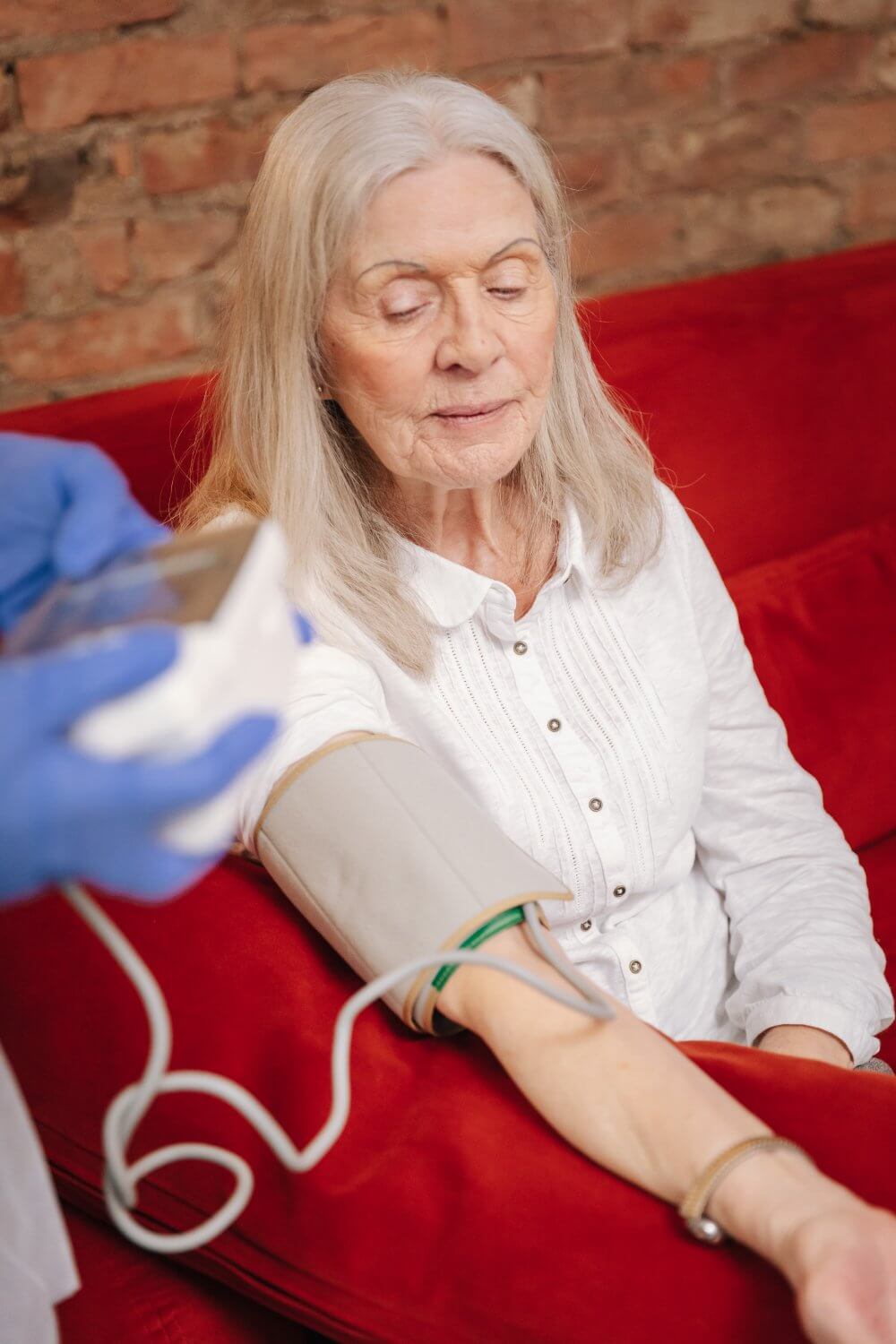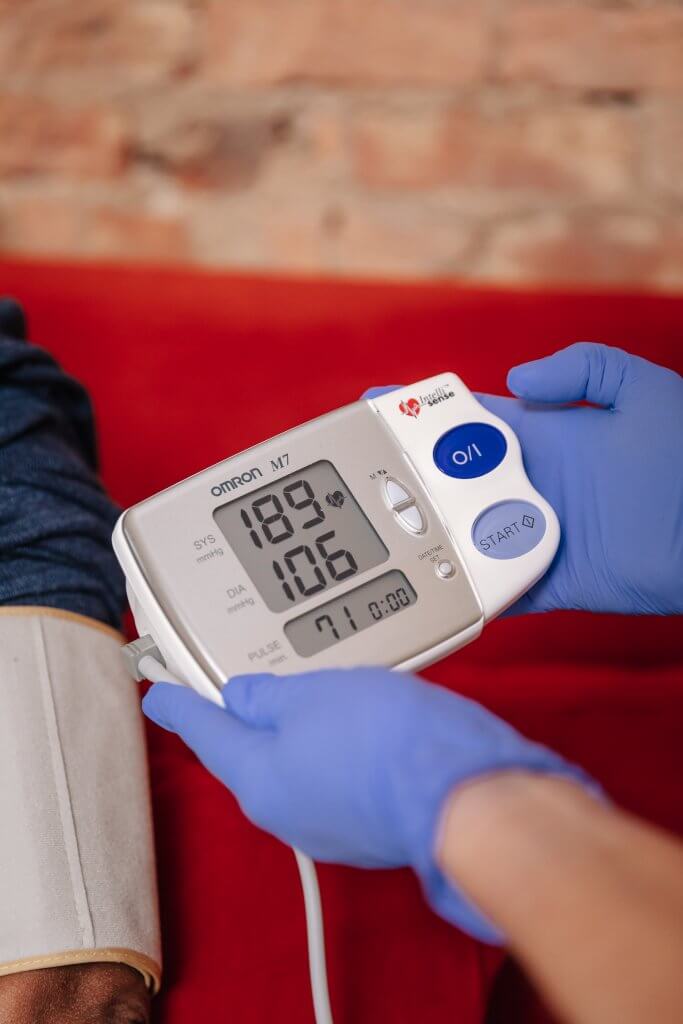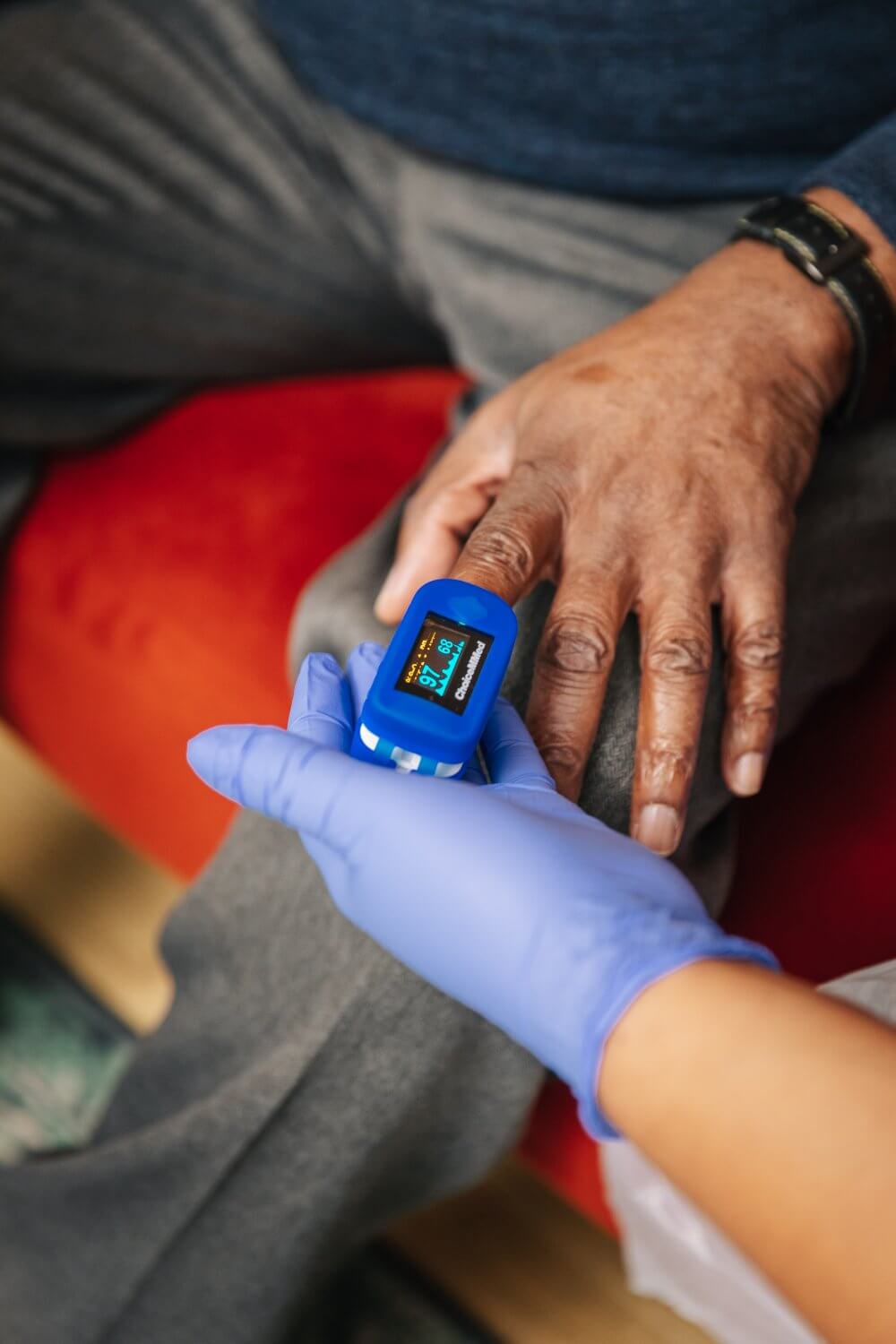
Vital Signs Monitoring At Home
Our Care Professionals are trained to monitor and record the five key vital signs of potential health problems whilst you stay happy at home. Home Instead are here to support you and your family with practical help and health care tailored to you.
Vital sign monitoring, care by professionals you can trust
Body temperature, pulse rate, rate of respiration, oxygen saturation and blood pressure are collectively known as vital signs. They provide critical information that is ‘vital’ for life-sustaining functions. Our Care Professionals are trained to monitor these signs in the comfort of your own home, so you can relax without the stress of endless clinic appointments and with a trusted service provided by a familiar friendly face.

Support from expertly trained Care Professionals
Home Instead’s Care Professionals are trained to the highest clinical standards and will work with your own doctors and health teams to ensure you are receiving the best possible care at home from people who share your hobbies and interests and are passionate about helping you and your loved ones. Our vital signs care will assist in detecting or monitoring medical problems, allowing our Care Professionals to liaise with your clinical team to ensure you get the care you need and so we can support you in managing your symptoms at home.

How can we help?
We've helped thousands of families to stay safe, comfortable and happy at home. Whatever situation you're facing, or whatever the question is, Home Instead is here to help.
Are you in need of a little guidance right away?
03300 583450Are you in need of a little guidance right away?
03300 583450Get in touch today to
see how we can help
What are vital signs?
Vital signs are a group of measurements used to indicate how well a person’s vital organs are functioning. They assess the general wellbeing of a person as well as providing information on possible diseases, deterioration, or progress in a person’s health.

What is vital signs monitoring?
This may involvetaking and recording blood pressure, oxygen saturation levels, pulse rate, respiration rate, temperature and performing a urinalysis. These may be requested independently or in combination. Care Professionals will then follow a care plan on how to action any changes or concerns.

Benefits of vital signs monitoring care
Care Professionals are fully trained and deemed competent in your care needs, this helps to reduce the number of infections and the need for hospital admissions.

Why choose vital signs monitoring care at home?
Having Health Care at Home with Home Instead allows you to maintain your independence, routine, and lifestyle so you can live your best life at home. Your Care Professional will be matched to your interests and hobbies so you can build a trusting relationship with them. We work with you and your clinical team to ensure the best care is delivered to the highest standard ensuring a fully bespoke and tailored care plan is provided.

Guides
FAQs
Who needs their vital signs monitored?
People with ongoing health problems that would benefit from regular checks should consider vital signs monitoring at home.
Why is vital signs monitoring important?
Vital signs monitoring is crucial to help you live a long and healthy life. Monitoring these signs gives you information about your general wellbeing that can be passed on to your clinical team. This can help pick up early signs of an infection, prevent a misdiagnosis, detect symptom-less medical problems, and motivate lifestyle choices. All of this can be done from inside your own home, without constant clinic appointments.
What are normal vital signs?
Vital signs vary from person to person, and as you age these may change, especially if you have other medical issues. Your clinical team will have a good idea of what your vital signs should look like and be able to notice any changes from your normal readings.

Michelle Tennant, Clinical Governance Lead






